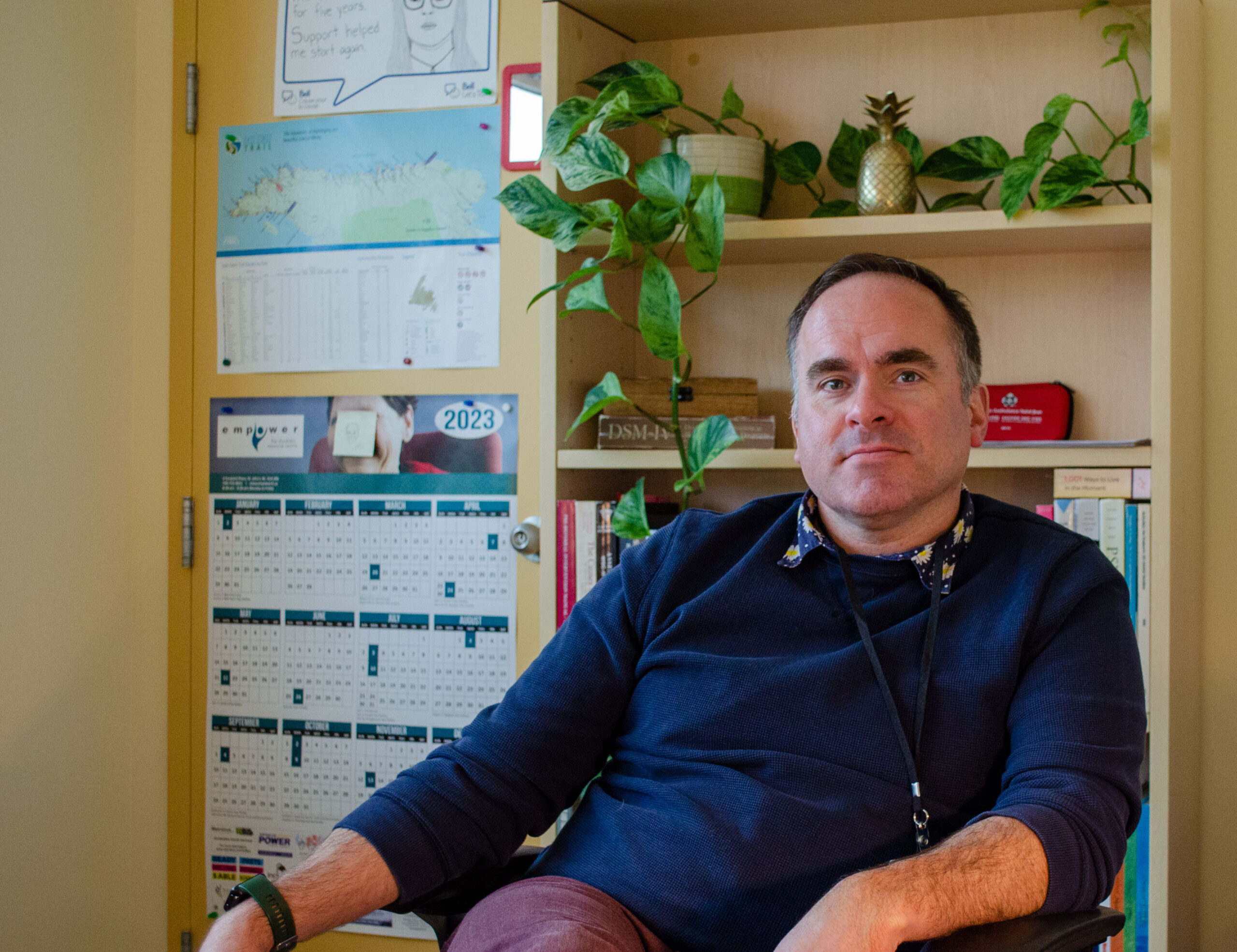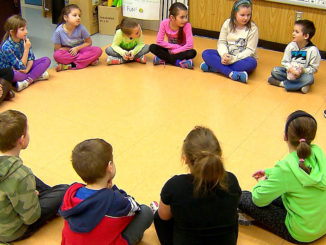When daylight saving time ends, one post-secondary student says she’s left in the dark.

Madison Ryan
Kicker
When Memorial University student Autum Mason moved to Mount Pearl from Nova Scotia, she was used to Atlantic Canadian winters. But, a familiar dread still creeps up on her as daylight wanes.
There’s a certain sluggishness that tends to come hand in hand when daylight saving time ends. The sky is nearly black by 5 p.m., and the bleak weather makes one wonder if the sun was ever there at all. When winter rolls around, Mason says something shifts within her.
“I think we have a certain kind of winter that really (brings) the worst of it,” she said. “It’s soaking wet, it gets right into your bones.”
As someone currently enrolled in an applied psychological science master’s program, Mason says school adds to the weight of what many people know as the winter blues.
“I always start feeling like maybe I just need to be getting more sleep. Like maybe I’m taking on too much, but it just doesn’t go away. It’s like living months of being at like, maybe at best, like 60 per cent. That’s the best I can put out,” said Mason.
She struggles with seasonal affective disorder, a condition previously known as seasonal depression. It’s closely related to the change of seasons, and about 15 per cent of Canadians are at least mildly affected by it, according to the Canadian Mental Health Association.
Ted Power, a counsellor at College of the North Atlantic on Prince Philip Drive, says it’s important for students to look past the clinical diagnosis of seasonal affective disorder and dig deeper.
“Diagnosis is good for research and for funding and stuff like that,” Power said. “Now, whether somebody is past the line or not past the line is important for students to look at and go, ‘how is this affecting me? How is the season changing? What is the actual stuff that’s happening to me?’ Whether they’re diagnosed with it or not.”
Feelings of depression and anxiety can be attributed to a lack of sunlight, says Power, and the prospect of a heavy workload at school can amplify those symptoms.
“If you can’t accept yourself, just meet yourself where you are.”
– Autum Mason
It’s something Mason says she’s struggled with since she started university.
“(Seasonal depression) coincides with the worst times in school,” she said. “August was great, October was pretty good. And then, like the last two weeks, everything picks up and you realize ‘OK, I’ve only got like a month, or month and a half before I’m done.’
“And so all of the schoolwork picks up, all of the pressure picks up. And nobody can accommodate that.”
The best way to deal with a lack of motivation, says Power, is to take it one step at a time.
“You have to get to school, that’s your first task,” said Power. “And if that’s a barrier, then that’s a problem. So, students can start to miss class … the more classes you miss, the more difficult it is to return.”
As for coping methods, he recommends getting as much light as possible during the grey season, talking to friends, and trying to look at the positive aspects that each season brings.
Counselling is also available for all students at the college and the university.
When the days get darker and work piles up, self-forgiveness is key, according to Mason. She says it’s easy to feel guilty about not doing exceptional work, but it’s an impossible standard.
“If you can’t accept yourself, just meet yourself where you are.”




Be the first to comment